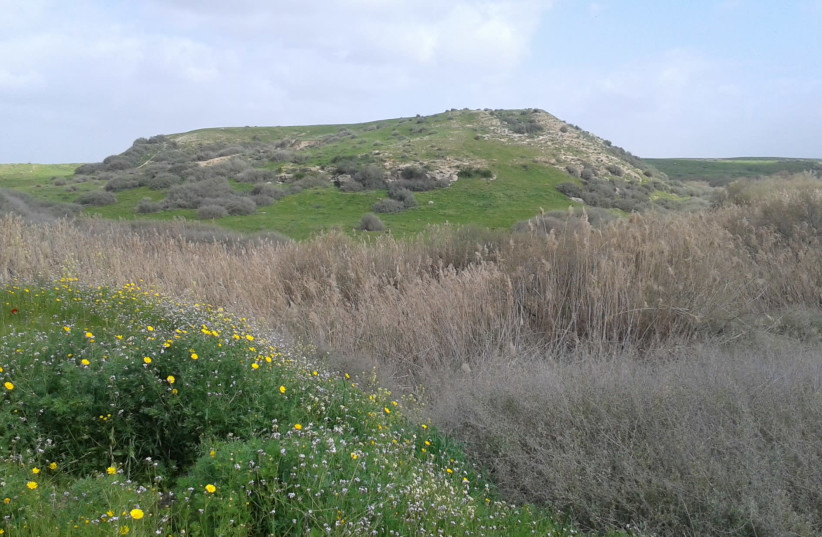After King Saul was killed in battle with the Philistines, David left Ziklag and traveled to Hebron to be anointed king of Israel.
ALEX WINSTON

The location of Ziklag, a settlement mentioned several times in Jewish scriptures, has long been debated. To date, up to 15 different archaeological sites have been suggested by archaeologists attempting to find the biblical town, such as Tel Halif near Kibbutz Lahav, Tel Shera in the western Negev, and Tel Sheva.
Ziklag is mentioned several times in the Bible, most famously in the Book of Samuel, when a young King David was granted refuge from King Saul by the Philistine King Achish of Gat. David was awarded Ziklag as a vassal state, under the protection of Achish, and he used it as a base for raids against the Geshurites, the Girzites and the Amalekites.
According to the Book of Samuel, the city was destroyed by the Amalekites and the population was enslaved. After King Saul was killed in battle with the Philistines, David left Ziklag and traveled to Hebron to be anointed king of Israel.
Tel a-Sharia in the Negev Desert has long been identified as one of the possible locations of Ziklag, and has one of the strongest claims to being the ancient settlement. Now, another theory has been put forward that supports Tel a-Sharia’s claims.
Professor Moshe Garsiel, professor emeritus of Bible at Bar-Ilan University, and his wife, Dr. Bat Sheva Garsiel who is a Koranic expert, have used Arabic toponymy (the study of place names) and local Islamic traditions to come to the conclusion that the real location of Ziklag is Tel a-Sharia, based on a law instituted by David regarding the sharing of spoils of war. Garsiel explains that Arabic names of sites do not preserve the old Biblical names, but perpetuate something of historical significance that occurred there and that local Arabs attributed to the place – and that is the basis of his theory regarding Ziklag.
“King David saved the hostages from the Amalakites, and returned with lots of bounty,” Garsiel explained to The Jerusalem Post. “He returned with everyone to Ziklag, but on the way to battle, a third of the battalion – around 200 soldiers – stayed behind, and two-thirds went out to war.
“All those who went to war with David asked why they should have to share their bounty with the others who had remained behind, so David made the ruling that for those who stayed behind, it’s as if they went to war.”
The Book of Samuel reads: “David replied, ‘The Lord kept us safe. He gave us success in the battle. No one will agree with what you say. Each person will receive an equal share. Some men stayed with the baggage. Some men fought in the battle. But each person will receive the same amount.’ David made this ruling as an order. The Israelites have followed this ruling ever since that day.” (Samuel I, 30:23-26).
“It’s a law,” Garsiel explains. “And this was the connection I made to Sharia, which means ‘law’ in Arabic.”
“The valley [below Tel-a Sharia] is called Wadi a-Sharia – The valley of ‘the law’. That became shortened to Tel Shera, which it is also known as in Hebrew. The law. From there I got to understanding that the Arabs named it after ‘the law of David.'”
Garsiel also points out the Islamic connections between the prophet Muhammad and King David, who is held in high esteem in Islamic tradition and was honored with the title ‘Halif’. The archaeological site Tel Halif is only a few kilometers from Tel a-Sharia and Garsiel says it is also named in honor of King David.
During one of Muhammad’s first victories in his conquest of the Arabian Peninsula, he issued a law that the spoils of war should be divided fairly between those went to battle and those who stayed in the camp, as David had done.
“When Muhammad fought and won, he introduced a sharia law that everyone who went out to war and those who remained behind share the spoils. That’s one of the connections between Muhammad and David,” Garsiel explained.
Content retrieved from: https://www.jpost.com/israel-news/biblical-site-of-ziklag-finally-identified-635127.